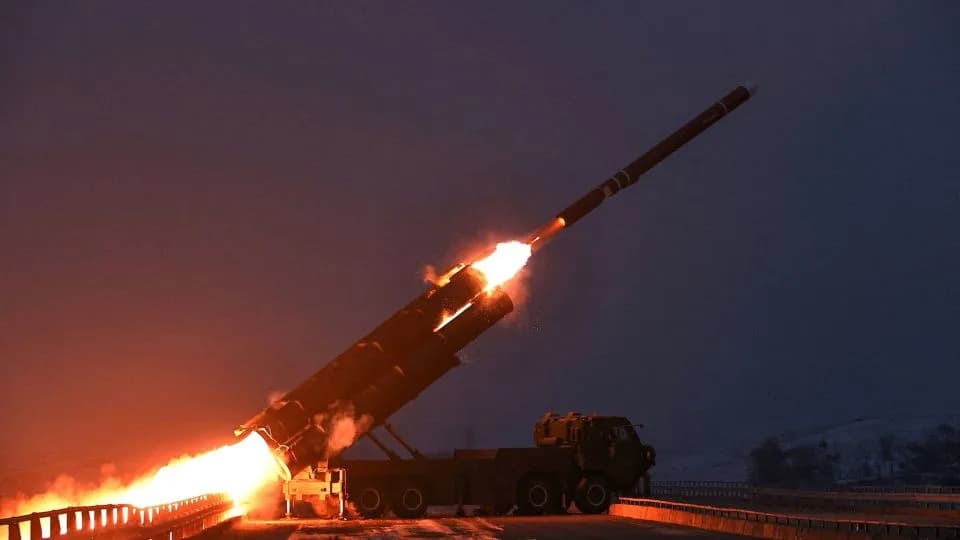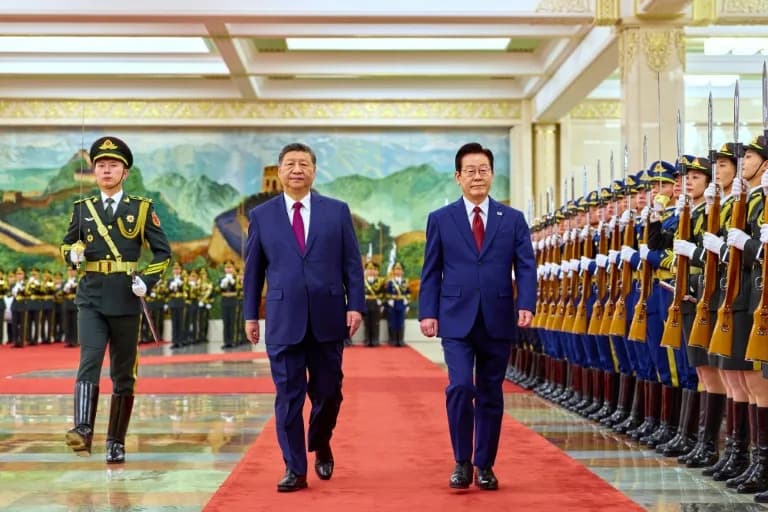North Korea launched an unidentified ballistic missile into the East Sea, South Korea's military said, landing outside Japan's economic waters with no reported damage. The test comes about a week after former U.S. President Donald Trump expressed support for South Korea's plan to develop a nuclear-powered submarine. Analysts link the launch to North Korea's stepped-up missile testing — aimed at improving precision and countering undersea threats — and to broader ties with Russia and China amid Pyongyang's self-declared "irreversible" nuclear status. The episode highlights rising tensions and the potential security implications of Seoul's submarine ambitions.
North Korea Fires Unidentified Ballistic Missile into East Sea Amid Tensions Over Seoul's Submarine Plans

North Korea Fires Unidentified Ballistic Missile
North Korea launched an unidentified ballistic missile on Friday, South Korea's military reported, roughly a week after former U.S. President Donald Trump publicly supported Seoul's plan to develop a nuclear-powered submarine. The Joint Chiefs of Staff in Seoul said the missile was fired toward the East Sea (also known as the Sea of Japan) from an area north of Pyongyang at 12:35 p.m. local time (0335 GMT).
Trajectory and impact: South Korean authorities said the missile flew about 700 kilometres (435 miles) and landed in waters outside Japan's exclusive economic zone. Japanese Prime Minister Sanae Takaichi reported there were no injuries or damage.
Regional context: Analysts say North Korea has dramatically increased missile testing in recent years to improve precision-strike capabilities, challenge both the United States and South Korea, and validate systems that could be exported. Observers link the latest launch to growing friction over Seoul's intention to acquire a nuclear-propelled submarine, a capability that would extend South Korea's undersea endurance and reach.
"From North Korea's perspective, the possibility of sudden attacks from the East Sea will be a source of anxiety," said Ahn Chan-il, a defector-turned-researcher who runs the World Institute for North Korea Studies. "If South Korea acquires a nuclear-powered submarine, they would be able to enter North Korean waters and preemptively monitor or intercept weapons such as submarine-launched ballistic missiles (SLBMs)."
Nuclear propulsion allows submarines to remain submerged far longer than diesel-electric boats, increasing stealth and operational range. Experts say developing indigenous nuclear-powered submarines would represent a major leap for South Korea's naval capabilities and defence industrial base, putting it in a select group of countries operating such vessels.
'Irreversible' nuclear state and broader geopolitics
Since denuclearisation talks with Trump stalled in 2019, Pyongyang has repeatedly declared itself an "irreversible" nuclear power. Analysts also point to closer ties between North Korea and Russia, noting visits by North Korean officials to Moscow and recent displays of diplomatic proximity with Russia and China. In September, North Korean leader Kim Jong Un attended a high-profile military parade alongside Chinese President Xi Jinping and Russian President Vladimir Putin — a symbolic signal of strengthened ties.
Pyongyang did not accept a recent offer from Trump to meet; instead, Foreign Minister Choe Son Hui travelled to Moscow, where officials agreed to deepen bilateral relations. South Korean lawmakers and intelligence officials say there are signs Pyongyang remains open to diplomatic engagement when conditions suit its interests.
Implications
The missile launch underscores continuing instability on the Korean Peninsula and the broader Indo-Pacific. Analysts warn that Seoul's submarine plans could further complicate regional security dynamics, potentially prompting more tests or demonstrations from Pyongyang as it seeks to deter perceived threats and project strength.
Note: All reported timings, distances and official statements reflect South Korean and Japanese government briefings and contemporary media reporting.
Help us improve.


































